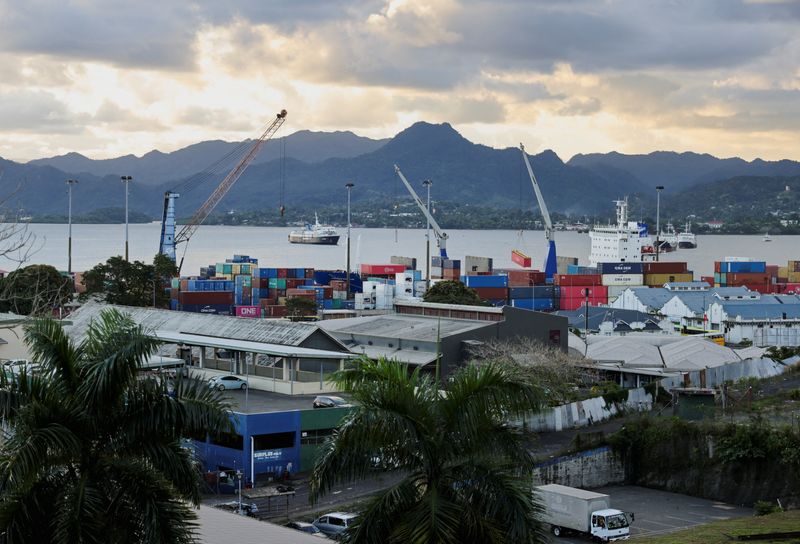By Kirsty Needham
SYDNEY (Reuters) – Growth across the Pacific Islands is expected to slow to 3.6% this year, down from 5.8% in 2023, as a post-pandemic rebound fades and Fiji, contributing half of the region’s output, slowed significantly, the World Bank said on Tuesday.
A long-term slowdown was caused by weaker investment, increasing climate risks, and structural challenges, a report said. Without immediate action to ramp up investment, Pacific Island nations may struggle to reduce poverty and generate new economic opportunities, it added.
The Washington-based global lender said investment had shrunk on average across Pacific Island countries in seven out of the past 15 years.
In a “troubling outlook”, investment growth in 11 Pacific Island countries is expected to be around 1% annually this decade, significantly lower than the 4.2% average growth from 2000 to 2019, the report said.
Natural disasters cost an average 1.5% of gross domestic product per year, and many Pacific Island countries struggle to manage economic shocks after disasters such as cyclones, and are locked into a cycle of “construction, destruction, and repair”, the report said.
While several smaller Pacific Island countries reliant on tourism saw growth, as tourists from Australia and New Zealand returned, Fiji’s growth is expected to slow to 3% in 2024.
Fiji’s public debt, at 79% of GDP in 2024, is among the region’s highest and one-third higher than pre-pandemic levels.
In Vanuatu, the liquidation of national airline Air Vanuatu hit tourism, causing a significant economic shock and growth to slow to 0.9%.
Vanuatu has experienced 10 years of shrinking investment, the World Bank said.
As well as investment in sustainable tourism and agriculture, the region needs investment in ports, inter-island shipping, and digital connectivity, it said.
Despite having some of the largest maritime zones in the world, Pacific Islands have been unable to fully capitalise on sustainable fishing, aquaculture, and marine biotechnology, it said.
The cost of internet connectivity is relatively high and speeds are poor, compared to the rest of the world, said World Bank senior economist Dana Vorisek.
“Digital connectivity really has to be addressed,” she told a media briefing in Suva.
Reforms to payment systems and more digital payment services are needed to boost the impact of remittances sent back home to families by offshore workers, officials said.

